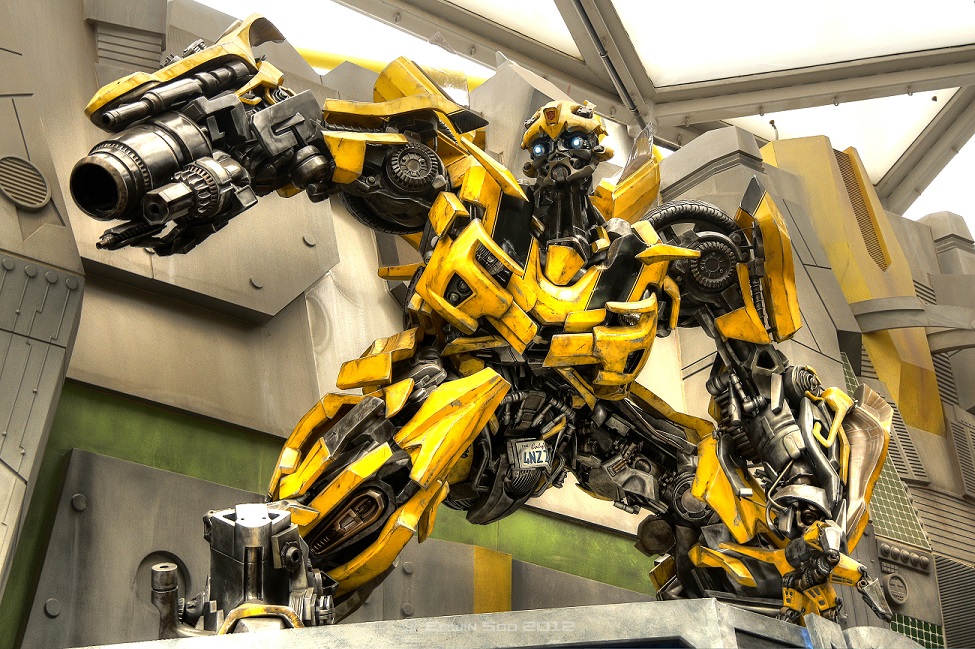Bumblebee is the first spin-off from the Transformers franchise and director Travis Knight wisely eschews the headache-inducing, non-stop action of the original offerings in favour of a softer and more accessible tale borrowing liberally from Amblin Entertainment alumni Steven Spielberg and Joe Dante. The latter provides the topography and energy of Bumblebee’s adopted community, while the former offers inspiration for the familial strife which so characterised his early work.
Beginning with a mercifully short vignette on Cybertron, we establish that the Autobots are seeking to establish a new home on earth away from the grasp of the evil Decepticons. Moses/God figure Optimus Prime has somehow evaded their grasp but pops up for a few brief moments to contextualise the plot, but this just highlights how the Transformers universe benefits from an absence of metal-on-metal action.
Bumblebee is mistaken for an enemy by the John Cena-led Army and becomes hunted by the military and the Decepticons who have ironically deceived them into accessing their satellite and telecommunication infrastructure in an effort to locate the Transformer. Cena is surprisingly under-cooked as the completely rote Agent Burns, whose performance reflects Christina Hodson’s complete disinterest in the military industrial aspects of this universe. It’s a refreshing if unexpected direction for the screenplay and one that allows it to benefit from that narrow scope, unlike the global reach of franchise’s predecessors.
Hailee Steinfeld plays Charlie, a girl who is still struggling to cope with her father’s untimely death, who befriends Bumblebee or ‘Bee’ as she sweetly names him. Whilst her slightly prickly and tom-boyish performance is charming, it is important to celebrate that Steinfeld is the franchise’s first female lead – and a bullied and misunderstood one at that. Less convincing is Memo, the lovesick neighbour of Charlie portrayed by Jorge Lendeborg Jr. His nerdish dialogue feels forced and the blossoming relationship between the two protagonists is never fully fleshed out. Charlie actually says “We’re not quite there yet,” when Memo predictably tries to hold her hand during the movie’s touching resolution, as though editing his character’s arc on the hoof.
Faring far better are the ones and zeros that constitute Bee; a hulking cutie and surrogate father/baby bursting with childlike naivety adjusting to the confines of low ceilings and furniture. For the majority of the run-time, this is an enjoyable genre flick which is fashioned to cleanse the palette of those who are either inured to or too young for the prior sequels. By softening the established tropes of the universe, Hasbro are risking losing the core action audience which has been their staple, but anyone who remembers the lukewarm cartoon can appreciate the injection of some much-needed fun and frivolity into what has been a strangely sombre and serious depiction of machine war.
When Bumblebee has to get down to the messy business of being a warrior, it’s easy to be reminded of the generic nature of these action set-pieces and the absence of the smaller more intimate and interesting moments becomes more apparent. The interactions between Charlie and Bee are sweet and well-rendered, providing much-needed levity and soul to a franchise which has been characterised by destruction and pomposity for a relentless decade.
